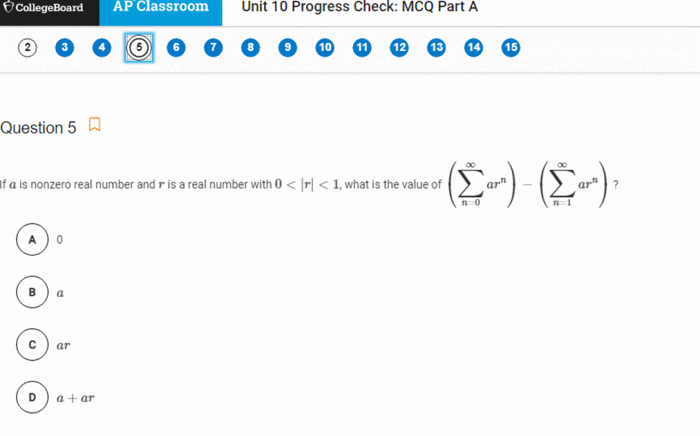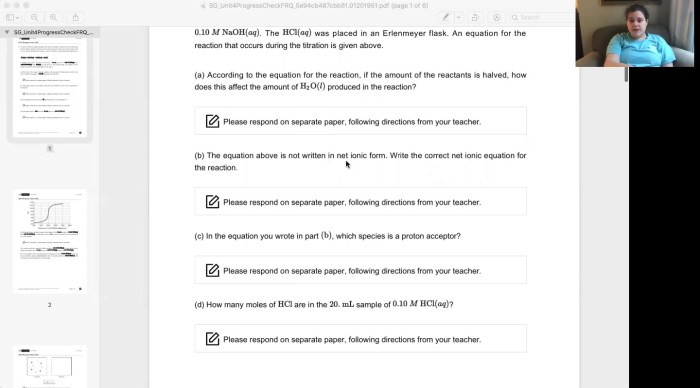Ap lang unit 4 progress check – Embark on a captivating journey through AP Lang Unit 4 with our comprehensive Progress Check guide. Delve into the intricacies of rhetorical analysis, argumentation, and synthesis, gaining a profound understanding that will propel you towards success.
Prepare to conquer the Unit 4 Progress Check with confidence, as we uncover key concepts, provide practice exercises, and empower you with effective strategies.
Introduction

The AP Lang Unit 4 Progress Check is a diagnostic assessment designed to provide students with feedback on their progress in the AP Lang course. The check covers the material taught in Unit 4, which includes rhetorical analysis and argumentation.
The purpose of the progress check is to help students identify areas where they need additional support. The results of the check can be used to develop individualized learning plans that will help students improve their skills in rhetorical analysis and argumentation.
Key Concepts

Unit 4 of AP Lang delves into a plethora of critical concepts that lay the foundation for understanding the intricacies of language and its impact on society. These concepts serve as building blocks for students to develop a comprehensive grasp of language analysis and its applications.
The key concepts covered in this unit encompass:
- Rhetorical Analysis:The systematic examination of how authors employ language to achieve specific effects and convey their messages.
- Argumentation:The art of constructing and evaluating persuasive arguments, understanding the different types of arguments, and identifying logical fallacies.
- Style and Syntax:The exploration of how writers utilize language techniques, sentence structures, and literary devices to create distinct effects and convey their intended meanings.
- Audience and Purpose:The recognition of how authors tailor their language and content to specific audiences and for specific purposes.
These concepts are pivotal in AP Lang as they equip students with the analytical tools necessary to dissect and interpret written and spoken discourse. By mastering these concepts, students gain the ability to:
- Identify and analyze the rhetorical strategies employed by authors
- Construct and evaluate persuasive arguments
- Appreciate the nuances of language and its ability to shape meaning
- Effectively communicate with different audiences for various purposes
Rhetorical Analysis: Ap Lang Unit 4 Progress Check

Rhetorical analysis involves examining the persuasive techniques and strategies employed by authors to influence readers’ thoughts, feelings, and actions. In Unit 4 texts, authors utilize various rhetorical strategies to convey their messages effectively.
One common strategy is the use of vivid language and imagery. By painting vivid pictures in the reader’s mind, authors can evoke strong emotions and make their arguments more memorable. For instance, in Frederick Douglass’s “The Narrative of the Life of Frederick Douglass, an American Slave,” he uses graphic descriptions of the horrors of slavery to elicit sympathy and outrage from readers.
Logos, Ap lang unit 4 progress check
Authors may also employ logical reasoning and evidence to support their claims. This strategy, known as logos, involves using facts, statistics, and research to bolster arguments and persuade readers through rational appeals. For example, in Rachel Carson’s “Silent Spring,” she presents scientific evidence to demonstrate the harmful effects of pesticides on the environment, effectively convincing readers of the need for environmental protection.
Pathos
Another effective strategy is the use of emotional appeals, or pathos. By evoking emotions such as empathy, fear, or anger, authors can connect with readers on a personal level and influence their opinions. In Martin Luther King Jr.’s “Letter from Birmingham Jail,” he uses emotional language to appeal to the conscience of his readers and persuade them to join the fight for civil rights.
Ethos
Finally, authors may establish credibility and build trust with their audience through ethos. This involves demonstrating expertise, experience, or moral authority on the subject matter. For instance, in Henry David Thoreau’s “Walden,” he uses his firsthand experiences living in the wilderness to lend credibility to his arguments about the importance of simplicity and self-reliance.
Argumentation

Argumentation is a crucial element of persuasive writing, and Unit 4 texts showcase a range of argumentative techniques. These techniques aim to convince readers by presenting logical arguments and supporting evidence.
Authors employ various methods to craft their arguments, including logical reasoning, emotional appeals, and rhetorical devices. Analyzing these techniques helps us understand how writers effectively persuade and influence their audience.
Logical Reasoning
Logical reasoning involves using logical principles and evidence to support an argument. Authors may use deductive reasoning, where a general principle leads to a specific conclusion, or inductive reasoning, where specific observations lead to a general conclusion.
Logical fallacies are errors in reasoning that can weaken an argument. Common fallacies include ad hominem attacks, where an opponent’s character is attacked rather than their argument, and slippery slope fallacies, where a small step is claimed to lead to a series of negative consequences.
Emotional Appeals
Emotional appeals aim to evoke feelings in the audience to influence their thinking. Authors may use pathos, or emotional language, to connect with readers on a personal level.
Emotional appeals can be effective in persuading audiences, but they should be used carefully. Overreliance on emotions can lead to manipulation and undermine the credibility of an argument.
Rhetorical Devices
Rhetorical devices are literary techniques used to enhance the impact of an argument. These devices can include metaphors, similes, and analogies, which create vivid images and comparisons.
The AP Lang Unit 4 Progress Check can be a great way to test your understanding of the material. If you’re looking for more practice, check out this article on which has the greater mass . It’s a great way to review some of the key concepts that will be on the test.
After reviewing the article, you can return to the AP Lang Unit 4 Progress Check and see how much you’ve improved.
Rhetorical questions, where an author poses a question to the audience but does not expect an answer, can engage readers and emphasize a point. Repetition and parallelism can create emphasis and rhythm, making an argument more memorable.
Synthesis
Synthesis is a skill that AP Lang students develop to combine information from multiple sources into a cohesive and original piece of writing. This process involves analyzing, interpreting, and evaluating different perspectives to create a new understanding or argument.
Synthesis tasks often require students to:
- Examine multiple sources with varying viewpoints
- Identify commonalities and differences among the sources
- Develop a thesis statement that presents a unique perspective
- Support the thesis with evidence from the sources
- Organize the information logically and coherently
Benefits of Synthesis
Engaging in synthesis activities provides several benefits for AP Lang students:
- Enhanced critical thinking skills:Synthesis requires students to critically evaluate information, identify biases, and draw meaningful connections between sources.
- Improved writing ability:By combining information from multiple sources, students develop the ability to write cohesive and well-organized essays that present a clear and original argument.
- Increased knowledge and understanding:Synthesis tasks expose students to diverse perspectives, broadening their knowledge and understanding of complex issues.
- Preparation for college and beyond:Synthesis is a skill that is highly valued in higher education and professional settings, where individuals are often required to synthesize information from multiple sources.
Practice and Preparation

To excel in the Unit 4 Progress Check, consistent preparation is key. Engage in regular review of course materials, focusing on the concepts and skills covered in the unit. Utilize practice exercises and sample questions to familiarize yourself with the format and expectations of the assessment.
Sample Questions and Practice Exercises
Practice questions and exercises provide valuable opportunities to test your understanding and identify areas for improvement. Consider the following examples:
-
-*Rhetorical Analysis
Analyze a provided text and identify the author’s purpose, audience, and persuasive techniques employed.
-*Argumentation
Develop a persuasive essay on a given topic, supporting your claims with evidence and logical reasoning.
-*Synthesis
Combine ideas from multiple sources to form a coherent and well-supported argument or analysis.
Commonly Asked Questions
What is the purpose of the AP Lang Unit 4 Progress Check?
The Progress Check assesses your understanding of key concepts covered in Unit 4, including rhetorical analysis, argumentation, and synthesis.
How can I prepare for the Progress Check?
Review unit materials, practice rhetorical analysis and argumentation techniques, and engage in synthesis tasks to enhance your skills.
What types of questions can I expect on the Progress Check?
The Progress Check may include multiple-choice, short answer, and essay questions that test your comprehension and critical thinking abilities.